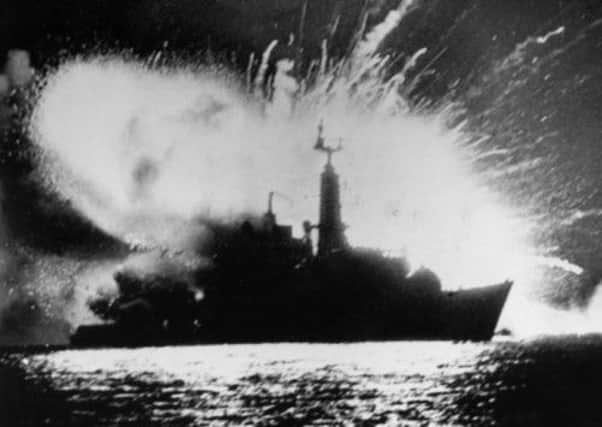Admiral who led UK forces to Falklands victory dies


The Prime Minister said yesterday that Admiral Woodward, the commander of the Royal Navy task force that retook the Falkland Islands in 1982, was a “truly courageous and decisive leader”.
Admiral Woodward reportedly died after a long illness and Mr Cameron said Britain was indebted to him for his many years of service.
Advertisement
Hide AdAdvertisement
Hide AdHe said: “I am saddened to hear that Admiral Sir John ‘Sandy’ Woodward has passed away. The admiral was a truly courageous and decisive leader, proven by his heroic command of the Royal Navy task force during the Falklands conflict.
“We are indebted to him for his many years of service and the vital role he played to ensure that the people of the Falkland Islands can still today live in peace and freedom. My thoughts and prayers are with Admiral Woodward’s family and friends at this difficult time.”
Defence Secretary Philip Hammond commended Admiral Woodward on his “magnificent achievement” in the Falklands and said he would be remembered by many as the Navy’s “fighting admiral”.
Mr Hammond said: “Admiral Woodward served his country with distinction throughout his career, but he will be best remembered by many as the Navy’s ‘fighting admiral’ after he led the Royal Navy task force, sent by Margaret Thatcher, to re-take the Falkland Islands in 1982.
“Following this magnificent achievement, he served as the Deputy Chief of the Defence Staff and went on before retirement to be the Flag Aide-de Camp to the Queen.”
First Sea Lord Admiral Sir George Zambellas said Admiral Woodward was highly regarded and widely respected in the military. He said: “Undaunted by the challenge of fighting a capable enemy over 8,000 miles from the UK, in the most demanding and extreme of weather conditions, and against uncertain odds, Admiral Woodward’s inspirational leadership and tactical acumen – meshing the realities of the higher political command at home with the raw and violent fight at sea – was a major factor in shaping the success of the British forces in the South Atlantic.”
Born in Penzance, Cornwall, on 1 May 1932, he went on to train at the Royal Naval College in Dartmouth. He became a submarine specialist in 1953, serving in three vessels before going on to command another three.
During his time serving in submarines, he married Charlotte Mary McMurtrie in 1960, and the couple went on to have a son and a daughter.
Advertisement
Hide AdAdvertisement
Hide AdHe took up roles at the Ministry of Defence and senior training posts from 1971 and became commander of HMS Sheffield between 1976 and 1977.
From then, his career accelerated – he served as director of naval plans from 1978 to 1981 before finding himself leading the Falklands operation. There, he was given the controversial go-ahead from Mrs Thatcher to sink any Argentine warship outside its national waters.
That led to the sinking of the Belgrano, one of the decisive moments in the conflict, and ended the threat of the South American country’s carrier and surface ships, which took refuge in coastal waters.
After fierce air and land battles in which the Navy played a crucial role, Argentina surrendered on 14 June 1982.